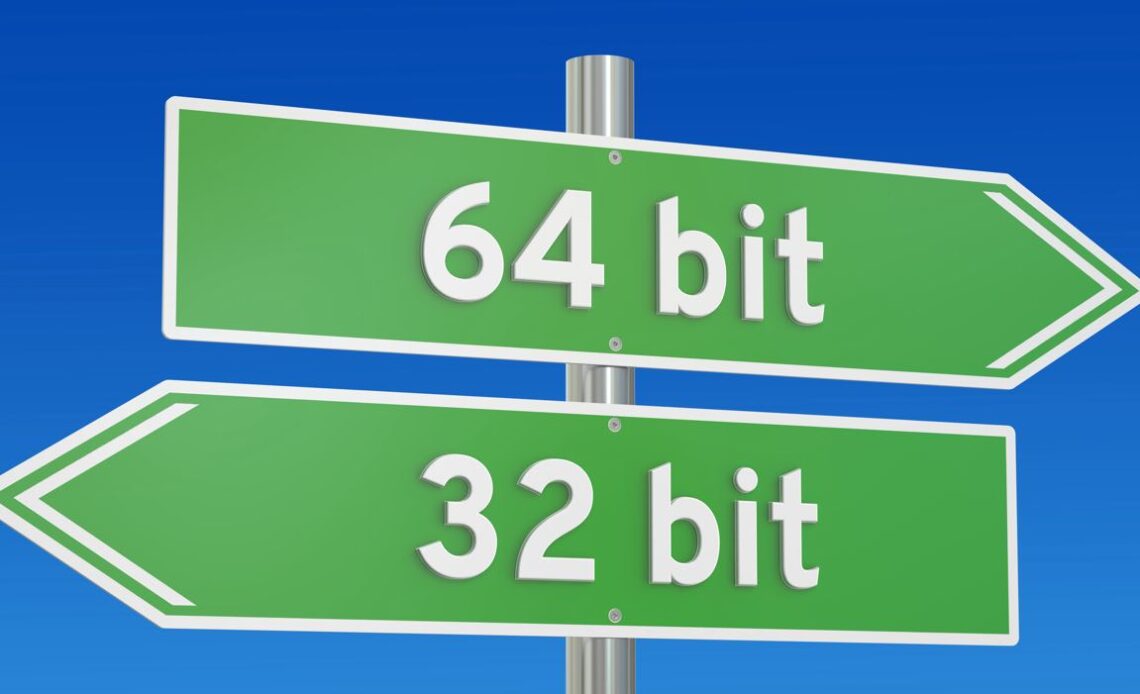
Above: Illustration by alexlmx/DepositPhotos
Microsoft is withdrawing the support for the 32-bit Windows 10 version, and the manufacturer has stopped offering this Windows 10 version to OEM manufacturers. Should those who have a 32-bit operating system on their PCs start worrying about this news?
Microsoft has been offering both 32-bit and 64-bit Windows 10 versions until recently, but things are going to change very soon. Both versions might appear the same to users, but there are a few differences. Microsoft recently changed its hardware requirements, and the modifications are noticed by NeoWin. Microsoft later published an explanation regarding this.
Microsoft’s recent move on the 32-bit Windows 10 Version
In the mid-week of May 2020, Microsoft started distributing the 32-bit Windows 10 version 2004 to OEM manufacturers. According to the experts of Microsoft Surface Pro Repair Dubai, all the hardware requirement updates mention a 64-bit operating system and a 64-bit processor. This clearly indicates that the services for 32-bit Windows 10 versions are coming to an end.
Well, the change was initiated with the Windows 10 version 2004, and we can expect that the same thing is going to happen with other versions, as well. But Microsoft appears to be managing with the entire transformation process carefully.
Microsoft statement on the matter spells out that Windows 10 version 2004 will be supported for 64-bit builds only from now on. Additionally, Microsoft will not release 32-bit builds for OEM distribution.
Will this decision affect existing users of 32-bit Windows 10?
Apparently, not. Microsoft has agreed to carry on its support for the existing 32-bit Windows 10 version. This means that users can still experience the Windows 10 operating system on their PCs, and they need not upgrade anything for now. Microsoft will continue publishing patches and updates that will strengthen the security features of that existing Windows build.
In addition to this, the Microsoft authority has confirmed that it is going to support all those media available on OEM distributions that have already got the 32-bit build.
Was this unexpected?
Both 32-bit and 64-bit Windows 10 similar for end-users, and it’s almost impossible to detect the differences if you’re not that tech-savvy. But, the builds do make a difference, especially when it comes to speed and performance. The news and declaration might be surprising but it was expected.
All the competitors of Microsoft have started moving from 32-bit support. Apple has already moved from 32-bit support. Last year, Google also made the same decision. The main problem with 32-bit computer builds is that they can access small installations of RAM. A small amount of RAM isn’t sufficient for handling large files, applications, multitasking, and much more.
On the other hand, Microsoft has currently found that only a few are committed to the 32-bit build Windows 10 version. Among all the existing Windows 10 users, only one-fifth are using the 32-bit Windows 10 version. That’s why Microsoft decided to withdraw the support for 32-bit Windows 10 and stopped distributing it to OEM PC manufacturers.
How to Check if your PC has a 32-bit Build or not
Have you missed the fact whether your computer has a 32-bit build or it is a 64-bit operating system you’re working on? There’s no problem in missing that; however, it’s for your good. It will let you know whether your PC is capable of handling upcoming security and feature updates.
Otherwise, you might be required to replace your PC as soon as possible. Or else, your PC might encounter online threats.
If you want to manifest whether your PC is supporting Windows 32-bit one, here’s what you can do:
Go to Search on your Windows 10 PC.
Type “System” in the search area. Once the result section comes up, go with the About your PC option.
Check out the specifications mentioned besides the ‘System type’ option. If it mentions that your computer has a 64-bit operating system along with an x64-based processor, then you’re good to go.
If you notice that it’s a 32-bit operating system or x32-based processor, then you need not freak out for now. As Microsoft will continue supporting these builds. If you think that these specifications aren’t enough for your computer, then you can certainly think of a replacement or upgrades if your PC offers so.
Difference between 32-bit and 64-bit Builds
If you have a look at the industry then almost everyone is considering the 64-bit operating systems as well as processors. They are way newer than 32-bit technology. But, the aspect is not only about staying steps ahead of others. When it comes to computers, processors are the brains.
These processors are broadly under two categories, and they are 32-bit and 64-bit ones. The better the processor in your computer, the better the performance you can expect. A 32-bit processor, for instance, can only handle RAM to a capacity of 2 to the power of 32.
If you calculate this, it would look like 4924967296 bytes or, more significantly, around 4GB of RAM. More specifically, a computer with a 32-bit processor can have RAM equal to or lower than 4GB.
On the other hand, if you consider a 64-bit processor, then it can handle 2^64 bytes. It equals 18446744073709551616 bytes, a significantly larger RAM allocation. In addition a 64-bit processor can process data almost 4-billion times faster than a 32-bit processor. So, you can easily see why the world is moving towards 64-bit processors and their coherent operating system version.
Nowadays, we all are handling larger files, media, applications, and everything in between. We do require more speed and performance for our PCs. Otherwise, it will take them an eternity to accomplish those tasks.
What are Positives regarding 64-bit Processors?
If your computer has a 64-bit processor, only then it can handle 64-bit operating systems and other software designed for this particular build. These are the potential benefits of using a 64-bit processor instead of a 32-bit.
Windows and other operating systems hardly show any issues while switching among applications when you are on a 64-bit operating system and 64-bit processor.
Besides handling plenty of data, 64-bit processors are designed to offer a better graphics experience. Your PC will be blazingly fast in opening up applications, games, editing photos and videos, playing AAA games, and so on.
Well, it’s not only about the fastest and reliable processes on your computer. Your computer’s security gets heightened by a 64-bit processor. Yes, your 64-bit PC might be affected by malware, viruses, ransomware, spyware, and much more. But, a 64-bit processor computer is more protected with additional security features than 32-bit ones.
In addition, 32-bit operating systems can run on 64-bit processors. But, a 64-bit operating system can’t run on 32-bit processors. So, it will be a wise decision if you check the system specifications before choosing the operating system or any media support.
Final Verdict…..
So, it seems that the changes that Microsoft has begun might not disturb your PC specifications for now. If you do have a 32-bit processor PC, then we would recommend you replace it immediately.
About the author…

Sunil Verma
Sunil Verma is an enthusiastic tech blogger with a creative and entrepreneurial mind. His focus and passion lead him to the latest technological developments and travel. He’s content creator who will enchant you with his ideas.

